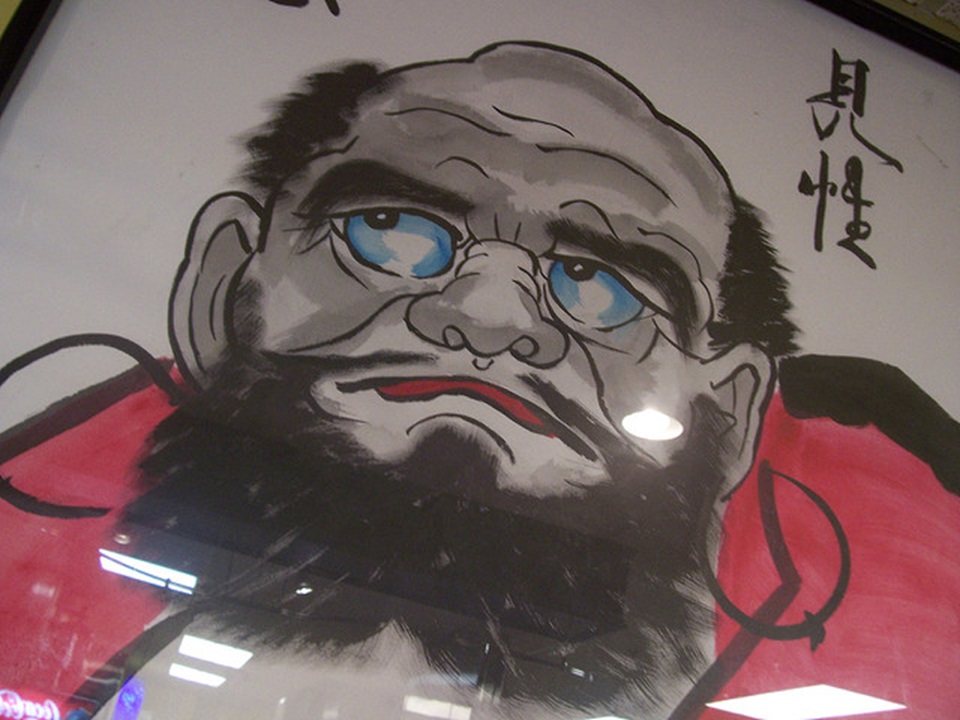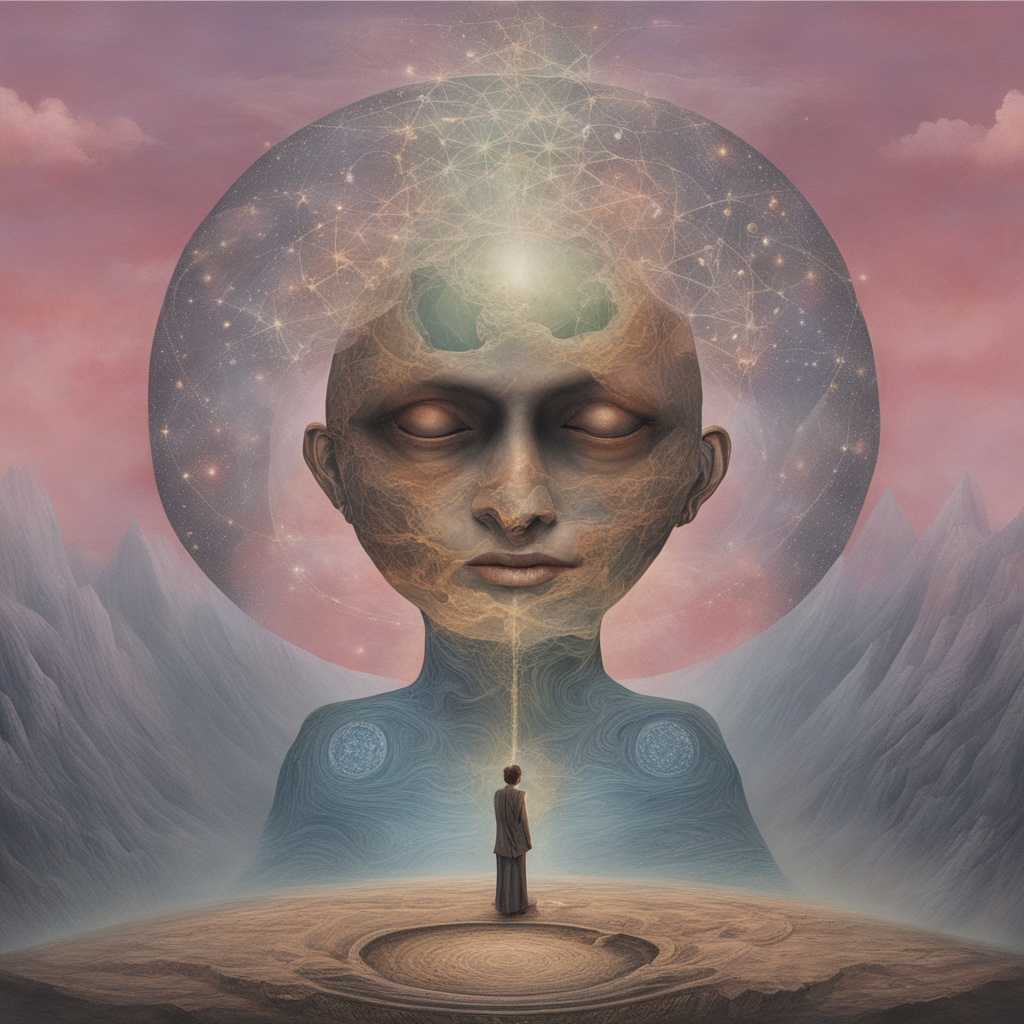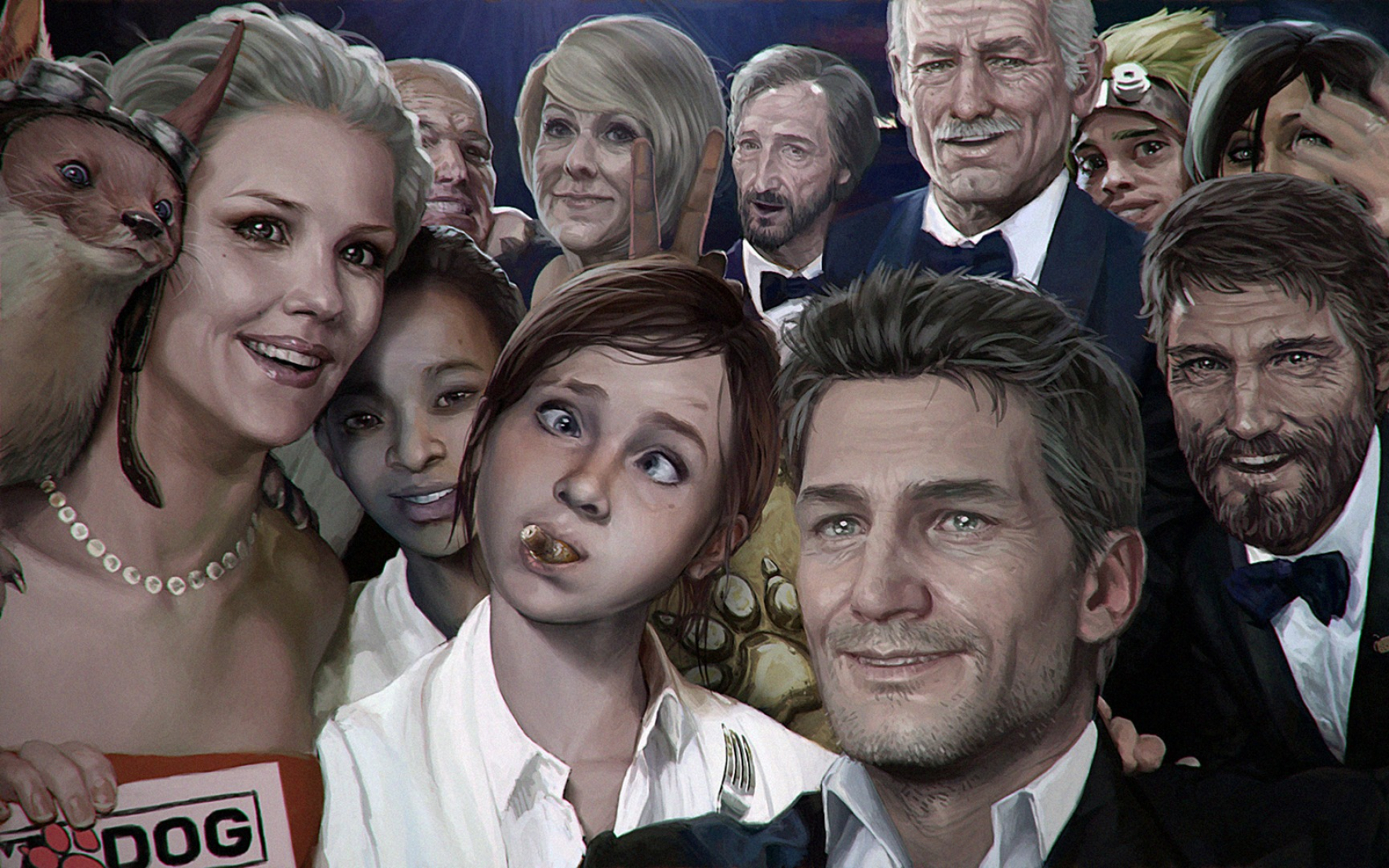As we go about our daily life we do something that is truly absurd and we never realise that we’re doing it. What we’re doing – without realising it – is that we’re assigning meaning to everything we come across. We assign meaning to everything we come across without ever taking a break, and also without ever realising that we’re doing it, and as a result we are inventing the world around us on a continual basis whilst remaining perfectly unaware of the fact. We are hoodwinking ourselves – we’re naming things and then believing – because of this – that we know what’s going on.
This is a tremendously absurd thing to be doing – it is a tremendously absurd thing to do because the operation of the Mechanism of Projection means that the process whereby we perceive reality is neatly reversed without us knowing it. We think that we are perceiving reality whilst actually we’re being controlled by a construct of reality that we don’t recognize as such; we are being wholly determined by a simulation that we don’t realise to be a simulation, in other words. First we create the simulation, and then we fall under its spell…
This is of course what simulations always do when we don’t spot them for what they are – they become a surrogate for reality, only when a simulation substitutes itself for reality it always has a coercive or unfree nature. When we believe an illusion to be real then we’re being controlled by that illusion; when we don’t see the lie to be a lie then we will always be controlled by that lie. There’s no two ways about this – we can struggle as hard as we want to become free in our lives but just as long as we don’t see the lie to be a lie, then our struggle to be free is simply another part of that lie, another aspect of it. This is why Krishnamurti says that ‘it is the truth that frees us, not our efforts to be free’. Our efforts – when they are based on an illusory way of seeing the world – are only going to trap us even more; our own struggling and striving works against us, which is something we can’t seem to understand.
What we generally do in life is that we do our best to improve our situation and solve whatever problems may come along, but as long as we’re not addressing the elephant in the room – which is that we are projecting meaning without seeing that we are – nothing is going to make the slightest bit of difference. By throwing ourselves into the attempt to improve things we can generate the appearance of progress, but because we haven’t spotted what the real root of our problems is, any apparent progress that we make is going to be reversed later on – I will exchange one troublesome problem for another, one issue for another, and this will go on forever. This situation is called ‘the conditioned life’. Which never resolves no matter how hard we work at it.
As long as we are unaware of the way in which we are continuously projecting our own brand of meaning upon the world then we will continue to remain in a self referential cocoon and as a result we are continuously going to be going around in circles. To exist within a while that has been created by our thinking is always to go around in circles the reason for this being that the system of thought is a closed system. Thought never leads us anywhere apart from back to itself in other words, and this is obvious enough when we consider that every idea we might possibly have must be definable in terms of every other idea. A system of logic always agrees with itself, after all. This is not immediately clear to us as we tend to imagine that each thought we have ‘stands on its own feet,’ rather than being just another generic category within a self-consistent logical system.
It seems to us that our thoughts are independently meaningful but they aren’t independent at all; they are merely tokens reflecting a single meaning system – a thought is, in other words, a ‘projection from a central point’, just as we started off by saying. When a single position or viewpoint is utilised in order to ‘say what everything is’ then everything that is named (or defined) is reflecting the meaning of that position or viewpoint. And this is why we can say there’s no diversity in a system that is based on assigned meaning, why we can say that there isn’t any diversity in a self-consistent system of logic. There is no diversity when everything agrees with everything else, only ‘disguised uniformity’ – reality gets to be real not by agreeing with some template or other, but by not agreeing. Reality can be ‘defined’ (only in a ‘backwards’ way of course) by saying that it is that which absolutely doesn’t agree with any template, any standard, any formula or rule.
This is an excellent way of talking about reality in a non-reductive way but it’s also utterly incomprehensible to us – it’s incomprehensible because templates and theories and rules and so on are our only way of understanding anything. This is something of a joke because what we’re saying here is that ‘the Original Unique Event’ becomes comprehensible to us only by being converted into a series of predictable irregularities; this is a joke (of course) because there is nothing regular about our starting-off point (since it isn’t mirroring anything or basing itself on anything); reality hasn’t got anything to do with any rules that we might propose to explain it or account for it. We can only know stuff to the extent that we can compel it to conform to our regulations, to our categories, but the thing about this is that rules and regulations aren’t real. There is no such thing as ‘regularity’ and so the action of ‘converting the unique into the regular’ also isn’t real – this is an action that takes place in a dream.
How could reality be about copying or reflecting anything when [1] there is nothing fixed or determinate to copy, and [2] the act of copying is itself an unreal act? There is such a thing as ‘spontaneous arising’ (i.e., stuff arising without there being rules saying that this is what must happen) but there is no such thing as ‘non-spontaneous arising’ – there’s no such thing as copying in reality, as we have just said; as soon as we fall into the trap of imagining that there is something there to copy (and that copying is a legitimate action) we enter into the ‘World of Spooks’, just as Robert Anton Wilson says. We have unwittingly taken up residence in the Spook World because we’ve reified the unreal world of our thoughts and made ‘the real’ into something completely unrecognisable. What we’re talking about here is Game Reality, that artificial version of reality which is created when we say or assume that there is something which it is important for us to copy, which is important for us to reproduce or echo. Game Reality is made up of copying and nothing else.
We copy out the rules that are assumed by our thinking so that every time we encounter the world (as we have judged it to be, as we have conceived it to be,) we are encountering these same unreal rules time and time again. We don’t see this to be the case – on the contrary, we experience ourselves as existing within a genuinely diverse world, a world that contains actual information. We experience ourselves living in a world that is not uniform, that is not made-up of regularities, even though a world that is made-up of regularities is the only type of world that thought can ever produce. Uniformity is actually the absence of reality but we’re seeing things backwards – what we perceive to be real is completely unreal, and vice versa. The Projected World is uniform simply because everything is being painted with the same brush – there’s only one brush in town and everything gets painted with it.
Everywhere we go we project the meaning that we are going to perceive ahead of us, wherever we go we’re going to meet with the meaning that we ourselves have assigned without us realising that this is the case. We’re constantly jumping to conclusions that are only true in our own imaginations. The act of assigning meaning is an absurd act because we are actually negating reality by insisting on saying what things are. We’re super-keen to ‘say what things are’ and we don’t pay any heed whatsoever to what the consequences of this bizarre compulsion might be – and the consequences are that we’re automatically nullifying ourselves. What nullifies us is acting on the compulsion to define everything in sight and then saying that what we haven’t defined (or rather what thought hasn’t defined) doesn’t really exist, when actually it’s the other way around.
Image – wallpaperaccess.com






